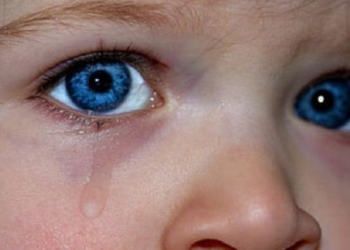By Monica Gill
“Can you stop fidgeting and finish your homework?” is one question that every parent asks or would have asked their children while studying.
A child’s mind is always ticking with the senses encouraging him/her to learn new things every day. Kids are born explorers and are naturally energetic and exuberant. Just when you think that they could not be any more distracted, something or the other catches their attention.
One of the major reasons children face concentration issues is that they are wired differently as compared to adults. Experts believe that every child has a different learning ability and that parents need to really understand the behavior a little more before labeling a child and saying that he/she has attention issues. There could be deeper reasons to it.
Parents play an important role in tackling concentration issues in kids. Having said that, take a look at 5 proven methods to make young children pay attention.
Memory & Attention Building Games
The practical way of learning is more effective than theoretical. This holds true in case of children as well. Kids learn more by playing, thus, it is always a good idea to make their activities a little more fun and engaging.
To begin with, put all the gadgets away including phones, tablets and computers. According to research, gadgets reduce attention and the memory power of kids. Let them play with toys and participate in activities that enhance their attention and concentration. This could include Thinking Games, Crossword & Jigsaw Puzzles etc. These games not only strengthen a child's concentrating abilities but also improves their attention and stimulates their thinking and planning capabilities by the use of memory.
Alternatively, you can also play games that requires no moving or fidgeting like ‘Just Sit' or ‘Statue'. Repeated playing of such games can strengthen the mind-body connection and improve focus.
Understand Your Child’s Way of Learning
As mentioned above, every child has a different way of learning. While some kids absorb information easily when they see it, others might process it when they hear it or have a practical knowledge of it. Here, it's important for parents to understand which category their kid falls in. There are various ways in which kids' process information. This includes – Visual, Auditory, Drawing, Doodling, Flashcards, Loud Reading, through Music, Kinesthetic etc.
Distraction-Free Environment
Gadgets are one of the factors leading to distractions in kids. Ideally, all gadgets like TV, tablets, phones, video games, etc should be put away to help children concentrate while studying. If your kid is using a computer for online learning, ensure it is being used only for studying and nothing else.
According to the American Academy of Pediatrics (AAP), children younger than 18 months should have no screen time at all, other than video-chatting.
Also, kids have a short attention span. While some kids might like a soothing and a calming environment, others may respond well to a surrounding that full of hustle and bustle. It's important to identify the kind of environment your child prefers studying in.
Healthy Food Habits
The kind of food your kid eats is directly related to how well he/she concentrates. While eating healthy foods like those rich in proteins increase concentration levels in children, eating junk food makes a child lazy and sluggish.
According to a study in the University of Ulster, UK, having baked beans and toast for breakfast increases cognition. Experts believe that eating vegetables and fruits rich in antioxidants boost your brain power. On the other hand, caffeinated energy drinks or coffee gives an unhealthy dose of sugar to kids as well as adults.
A Fixed Routine
Maintaining a fixed but flexible routine for kids is important. This not only helps improve time management but also programs the kid's brain to do a particular task routinely. This in-turn helps increase the concentration power in them.
This routine could also include naps and breaks that are vital for proper functioning of the brain. A power nap or a good nights’ rest would do the trick of increasing concentration in your kid.
Subsequently, as part of the routine, set up a reward system. The rewards do not always have to be materialistic but can be in the form of praise or something that the child loves doing. For example, if your child loves reading English or playing online learning games, as a reward for studying Mathematics, you can let him/her read or play more of her favorite subject.
Like any other skill, concentration can be improved with consistency. The above tips will not only help improve your kid's concentration but also strengthen the relationship you share with your child.
Author Bio:
Monica a self-driven person and loves to spend her leisure time reading interesting books that come her way. She is passionate about writing and collecting new books. She believes in hard work and it is her persistence that keeps her doing better. She is a perfectionist and doesn’t let go off things that don’t appear perfect to her. She loves traveling whenever she needs time off of her busy schedule. Her favorite holiday destination is Hawaii.













